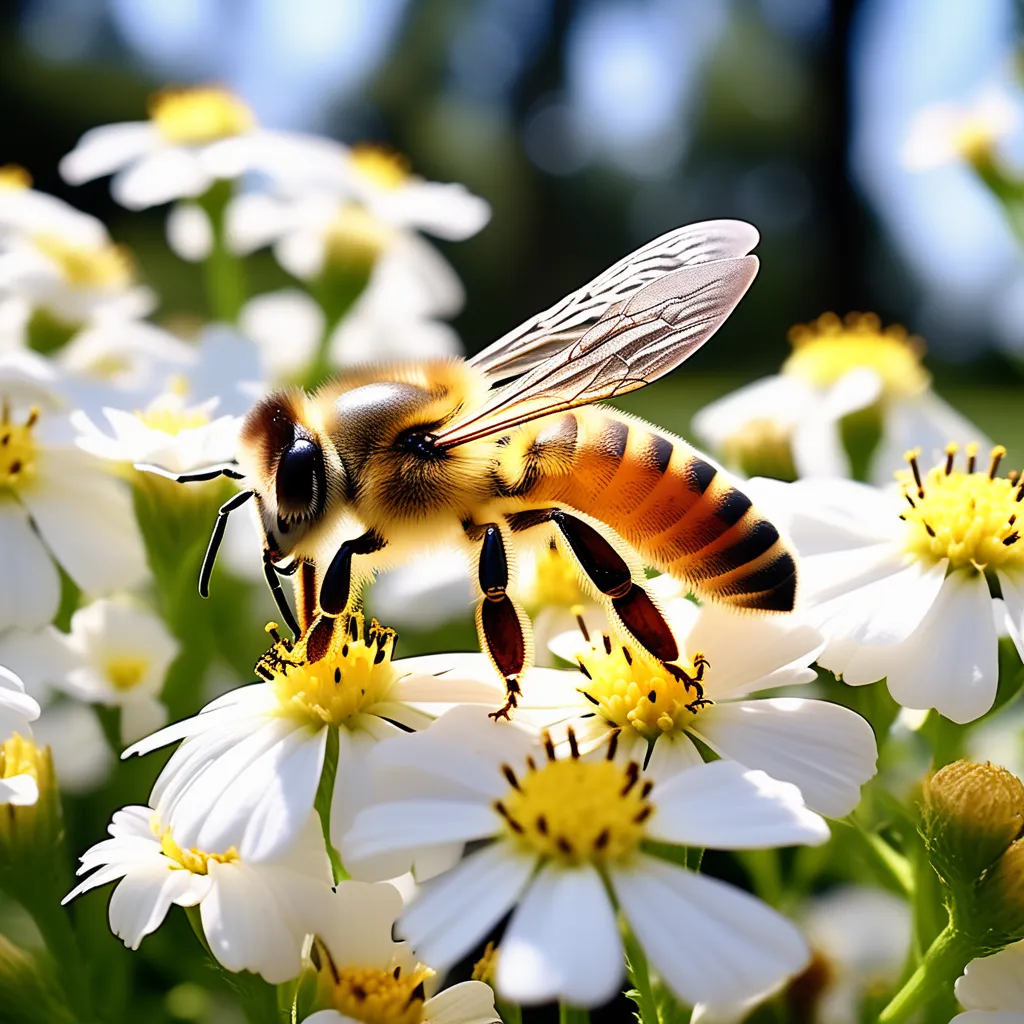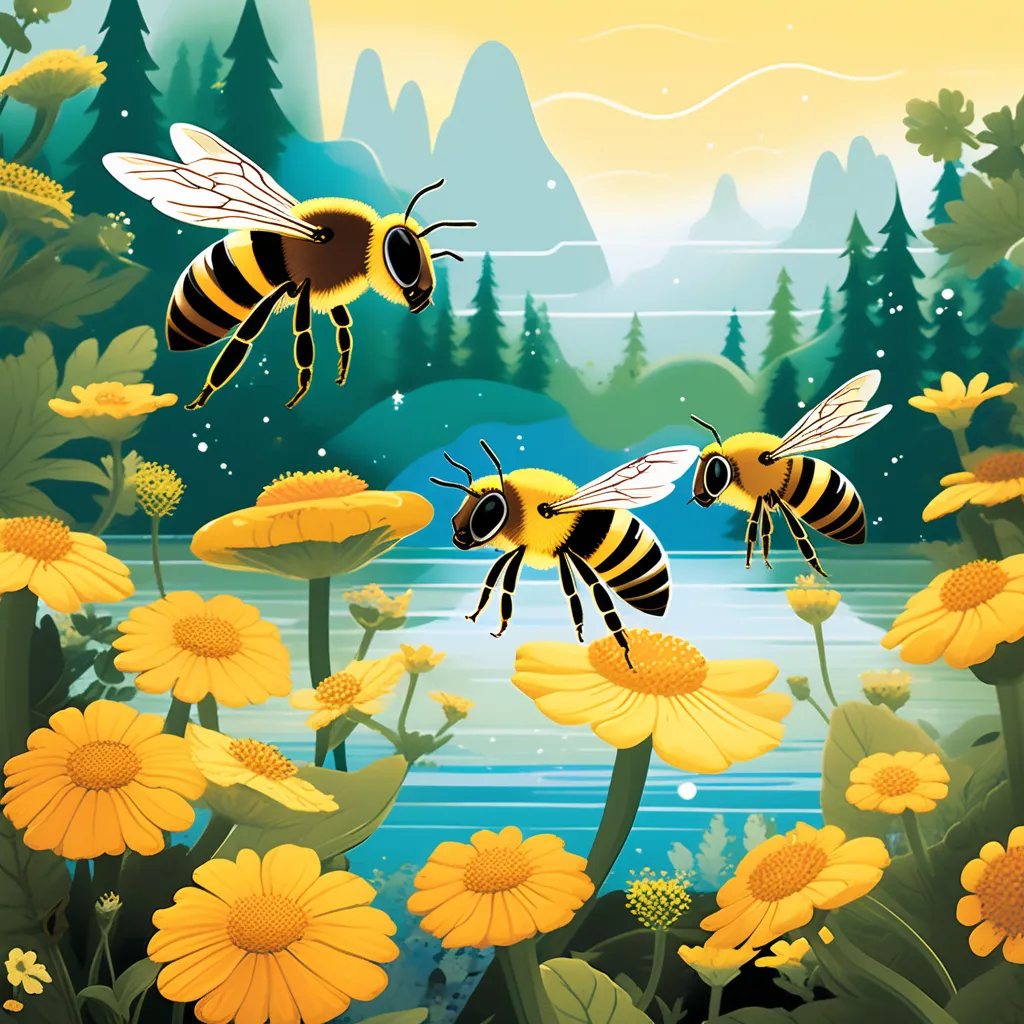The Importance of Bees in Our Ecosystem
As someone who has always marveled at the wonders of nature, the vital role of bees in our ecosystem has been a topic close to my heart. Beyond their reputation as honey producers, bees play a fundamental role in maintaining the delicate balance of our environment. Let's explore why these buzzing insects are so crucial and how their well-being is intertwined with ours.

Pollination: A Vital Ecological Service
The Buzz about Pollination
The buzz you hear when bees are at work isn't just background noise; it's the sound of an ecological superhero in action. Bees, with their fuzzy bodies and specialized structures, are champion pollinators. When they visit flowers to collect nectar and pollen, they inadvertently transfer pollen from one flower to another, facilitating the reproduction of flowering plants.
The Fruitful Outcome
Imagine your favorite fruits – apples, strawberries, avocados. Bees are instrumental in their production. Through their pollination efforts, they contribute to the formation of seeds and fruits. Without this vital service, the biodiversity of flowering plants would decline, impacting not only our diets but the entire ecosystem.
Biodiversity and Ecosystem Stability
The Web of Life
Bees are integral to the web of life. The plants they pollinate provide food for various animals, from insects to mammals. As plants thrive, they create habitats for a multitude of species. It's a ripple effect where the well-being of bees sets the stage for the flourishing of diverse ecosystems.
Crop Diversity and Resilience
In agriculture, bees are unsung heroes. They enhance crop diversity and resilience. Farms with healthy bee populations experience better yields and more robust ecosystems. The interplay between bees, crops, and other wildlife creates a harmonious balance that benefits both nature and agriculture.
Threats to Bee Populations
A World Without Bees
The importance of bees becomes even more evident when we consider the threats they face. Pesticides, habitat loss, climate change, and diseases are taking a toll on bee populations worldwide. The decline of bee populations poses a severe risk to global food security and ecosystem stability.
Personal Reflection
I remember a time when the buzzing of bees in my garden was a constant soundtrack. However, as the years passed, I noticed a decline in their numbers. The realization that the vibrant ecosystem I cherished was under threat due to the decline of these essential pollinators was a sobering moment.
The Human Connection
Agricultural Dependency
Our agricultural practices are intricately linked to bees. A significant portion of the food we consume directly or indirectly relies on pollination. From fruits and vegetables to nuts and seeds, the variety on our plates owes much to the work of bees. The decline of bee populations directly affects our food supply.
Economic Impact
The economic impact of declining bee populations is substantial. Beyond the agricultural sector, industries such as textiles and pharmaceuticals also rely on plant products that bees help produce. The repercussions of a dwindling bee population would extend far beyond the fields and into various aspects of our daily lives.
Conservation and Bee-friendly Practices
Planting Bee-friendly Gardens
In my own small way, I decided to contribute to bee conservation by transforming my garden into a haven for these essential insects. Planting bee-friendly flowers, avoiding harmful pesticides, and providing water sources are simple yet effective steps. It's heartening to witness the return of bees to my garden, reaffirming the impact of individual actions.
Supporting Beekeeping Initiatives
Supporting local beekeepers and their initiatives is another tangible way to contribute. Beekeepers play a crucial role in maintaining healthy bee populations. By purchasing local honey and products, we support these stewards of bee well-being.
The Call to Action
Raising Awareness
The urgency of bee conservation requires collective awareness and action. Whether through community initiatives, educational programs, or policy advocacy, spreading the word about the importance of bees is essential. Understanding the interconnectedness of our well-being with that of bees is the first step toward creating a sustainable future.
Personal Commitment
Reflecting on the role of bees in our ecosystem prompted me to make conscious choices in my lifestyle. From supporting local beekeepers to advocating for environmentally friendly practices, I've embraced a personal commitment to the well-being of these remarkable insects.

Conclusion: A Shared Responsibility
In conclusion, the importance of bees in our ecosystem is not just a natural wonder but a shared responsibility. As someone who has witnessed the decline of bee populations, I believe that each of us can play a role in their conservation. By understanding the intricate links between bees, biodiversity, and our own well-being, we can collectively work towards a future where the hum of bees remains an enduring and essential part of our natural symphony.<

No comments:
Post a Comment